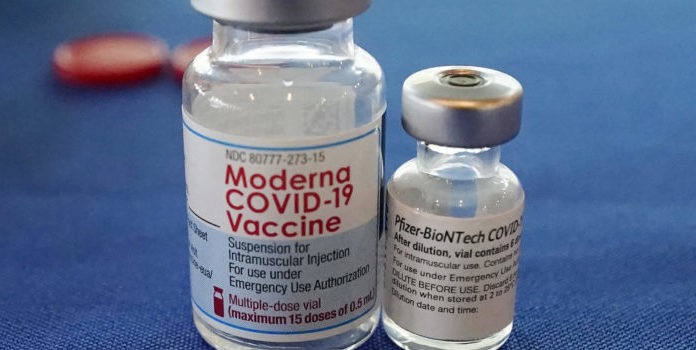(José Niño, Headline USA) A new Senate report alleges federal health agencies delayed warning the public about myocarditis risks linked to mRNA COVID-19 vaccines.
On Wednesday, Sen. Ron Johnson, R-WI, chairman of the Senate’s Permanent Subcommittee on Investigations, released a major interim staff report and convened a high-profile hearing to examine how federal health agencies handled early warnings about myocarditis—a rare heart inflammation—after people started receiving mRNA COVID-19 jabs.
The investigation claimed that U.S. health officials delayed and downplayed public warnings about this potential side effect, particularly among young adults, during the early months of the vaccine rollout.
🚨 DR DREW: “Senator Ron Johnson just had a hearing where he revealed the extraordinary evidence of myocarditis in young males and that the [Biden] administration and the FDA and the NIH knew about it and suppressed this information, leading God knows how many kids to serious… pic.twitter.com/jdVT0oMTfN
— Chief Nerd (@TheChiefNerd) May 23, 2025
Myocarditis is an inflammation of the heart muscle, which can cause chest pain, shortness of breath, and, in rare cases, serious complications. COVID-19 vaccinations have been implicated in the occurrence of myocarditis.
The newly released PSI report, spanning over 2,400 pages of records, alleges that federal officials were alerted as early as February 2021 to the risk of myocarditis after mRNA vaccination. Israeli health authorities first notified their U.S. counterparts about dozens of myocarditis cases in young people following vaccination, per a report by Voz.
Over the next several months, U.S. vaccine safety monitoring systems, including the Vaccine Adverse Event Reporting System (VAERS), began detecting similar signals.
According to Johnson’s report, by mid-May 2021, Centers for Disease Control and Prevention (CDC) officials were drafting a formal notification to alert healthcare providers about the myocarditis risk.
However, internal communications reveal that senior officials at the Food and Drug Administration, including CDC official Sara Oliver, expressed concerns about issuing a prominent warning, fearing it could appear “alarmist” and potentially undermine vaccination efforts.
Instead of a formal Health Alert Network (HAN) notification, the CDC opted for a less prominent website posting.
The report contends that this decision delayed broad awareness among healthcare providers and the public, even as VAERS reports of myocarditis continued to rise. It wasn’t until late June 2021 that the FDA updated vaccine labels to include myocarditis warnings.
José Niño is the deputy editor of Headline USA. Follow him at x.com/JoseAlNino

